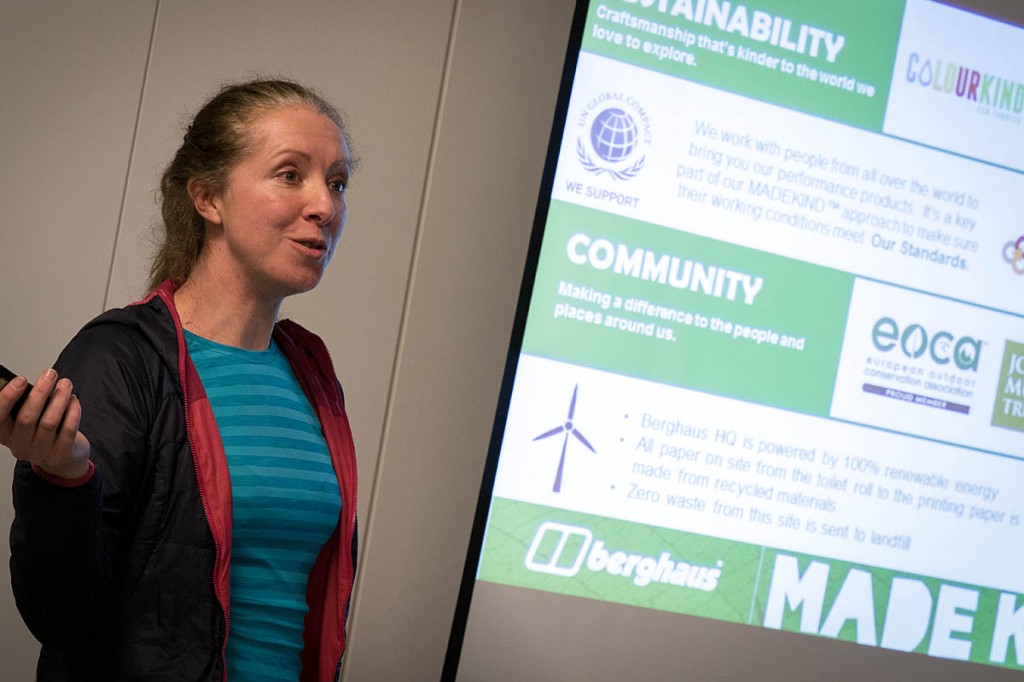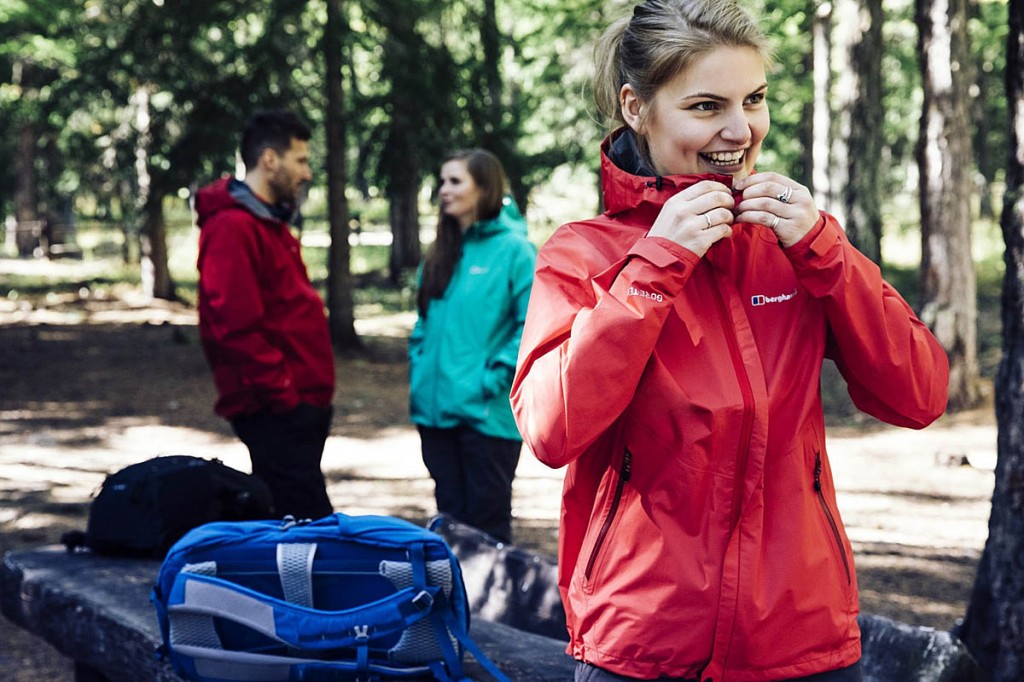Leading outdoors brand Berghaus is pledging to remove a controversial chemical treatment from its clothing by the year 2020 as part of a continuing move to reduce its manufacturing environmental and social impact.
The Sunderland-based company announced a range of measures to improve sustainability, including ending perfluorinated compounds from the durable water repellent treatment applied to its jackets and trousers.
It also said, by autumn-winter this year, 40 per cent of its range will be part of the Madekind collection. To qualify, at least one of Berghaus’s four criteria have to be met: use of Colourkind fabrics, using a process dramatically reducing the amount of dye; content of more than 50 per cent recycled fabric or insulation; more than 90 per cent bluesign fabrics; or 100 per cent RDS certified down.
It said the latest Madekind products include new autumn-winter synthetic insulation that uses recycled plastic bottles in a number of styles. Depending on the quantity of insulation in the particular style, this ranges from one to 23 plastic bottles used per jacket.
Berghaus said it is improving its understanding of the environmental impact of the fabrics and other components that go into its products, recognising the importance of working with factories, which are managing energy, water, waste and chemicals in a responsible and efficient way.
It is undertaking an exercise to identify all of the factories which are used in the processing and manufacturing of fabrics and other components. A company spokesperson said: “As a bluesign system partner Berghaus is working systematically to increase coverage of factories which are bluesign certified and have therefore been shown to be managing their impacts responsibly.
“Currently, more than 70 per cent of the brand’s fabric suppliers are bluesign system partners.”
The brand said, as members of the Sustainable Apparel Coalition, Berghaus is leading its parent company Pentland Brands roll out of the Higg Index to improve transparency and provide better understanding of the environmental impacts in the supply chain. The index is a means for companies to measure their environmental and social and labour impacts and identify areas for improvement.
The spokesperson said: “Through Pentland Brands, the brand is a member of the Afirm Group, which works to reduce the use and impact of harmful substances in the apparel and footwear supply chain.
“All Berghaus products have to meet the requirements set out in Pentland’s restricted substances list which is aligned to that of Afirm. Berghaus is also a member of the Leather Working Group and the brand’s leather supplier is a medal-rated tannery.
“In an effort to provide further transparency of the supply chain, for the first time the full list of Pentland direct factories, including those used to make Berghaus products, is now publicly available in the form of an interactive map. This can be accessed in the ethical trading section of the Berghaus website.
It has also made available Pentland’s Our Standards document, which outlines the standards against which brands in the group hold themselves and their business partners accountable in the area of corporate responsibility, along with the Making Things Better document, a review of corporate responsibility-related activities across all of the group’s brands, which contains numerous examples from Berghaus.
Berghaus’s corporate responsibility programme is led by sustainability manager Elaine Gardiner, working closely with teams from across the business and colleagues from parent company Pentland.


Outdoors Guy
20 April 2017Be great if they returned manufacture to the UK- like it was not that long ago.
While they are at it, they can also make Brasher back in the UK- "Proudly made in Kendal by craftsmen" the old boxes proudly exclaimed, (not that long ago either-the 90's).
Now made in China :[
Thanks Pentland, you've ruined two iconic brands now!